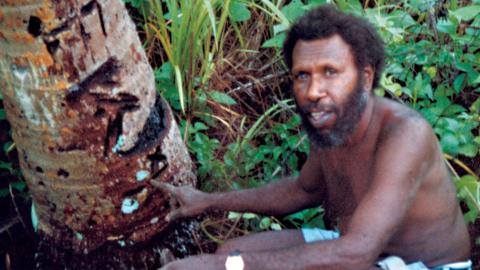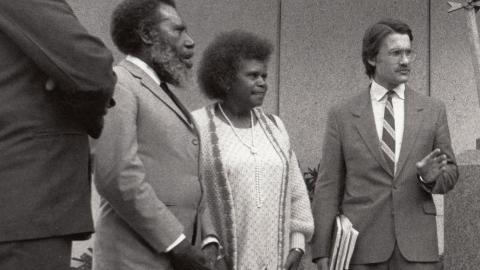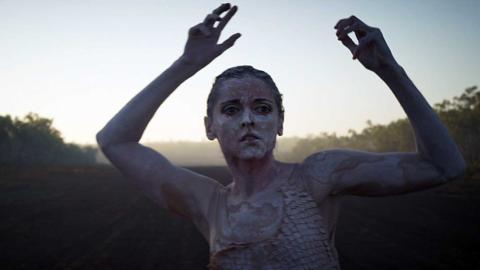
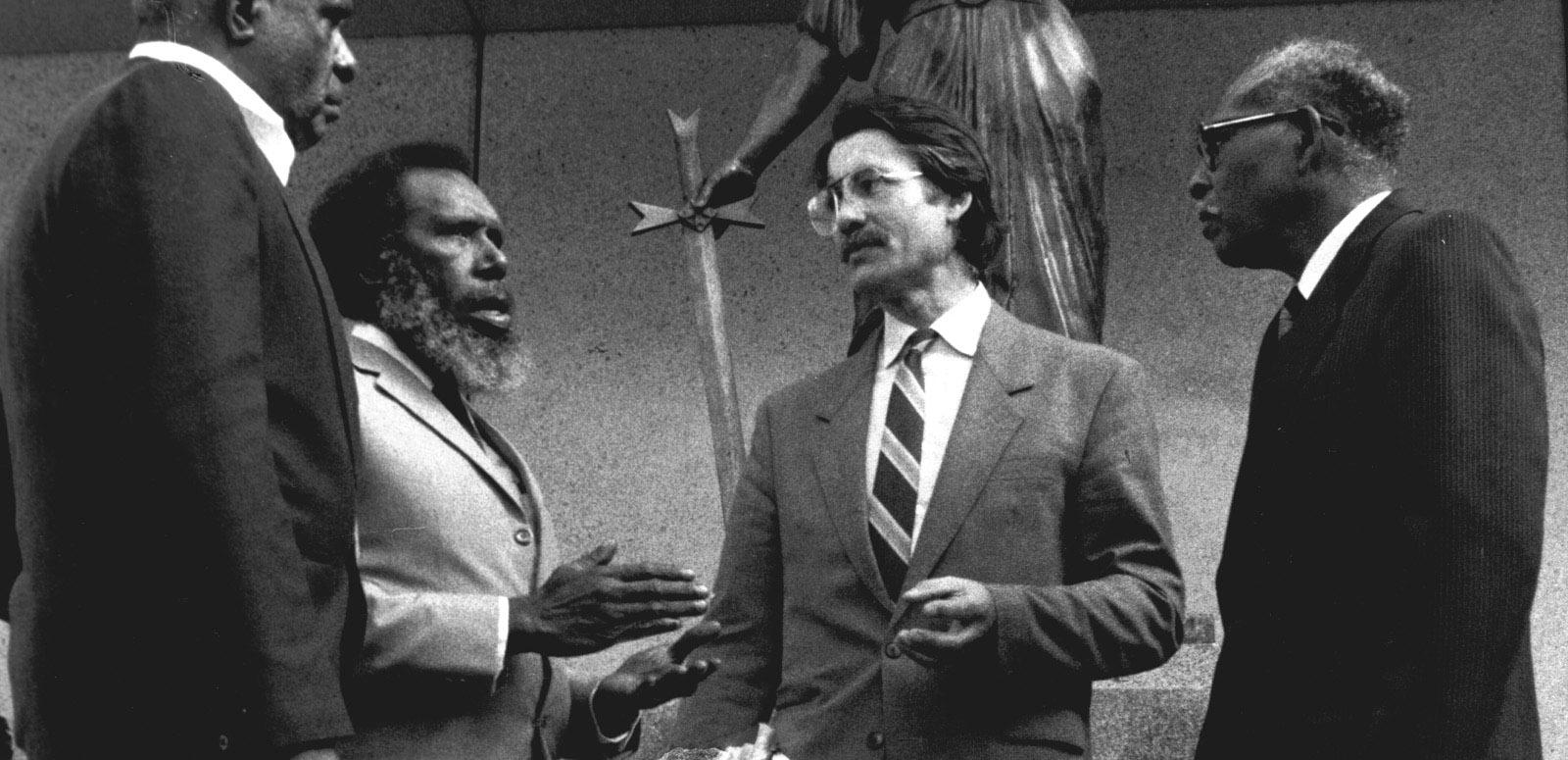
Remembering Eddie Mabo
WARNING: this article contains names, images or voices of deceased Aboriginal and Torres Strait Islander people.
The story of Eddie Mabo banishes any doubt that one person can bring about monumental change. Eddie Koiki Mabo's name is synonymous with the 'Mabo Case' - a legal landmark which recognised the land rights of Aboriginal and Torres Strait Islander peoples.
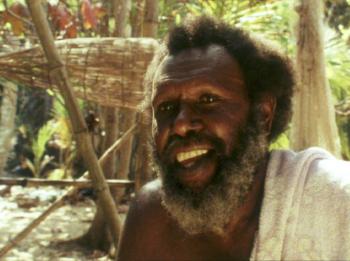
Mabo was a passionate, deeply intelligent and obstinate Meriam man. His land title claim, and the preservation of the culture of his island home of Mer (Murray Island) in the Torres Strait, was his life's work.
Together with his wife Bonita he started the Black Community School in 1973, spurred on by his desire for his children to learn traditional language and cultural practices, enabling the continuation of their cultural identity.
During the 1960s and '70s, Mabo worked as a gardener at James Cook University in Townsville. After seeing the level of Mabo's knowledge about Torres Strait Islander culture, academics at the university engaged him as a teacher in their courses. It was here that Mabo learned that the land title rights he had always taken for granted back on Mer were not recognised by Australian law. Armed with his drive for fairness and his commitment to his people and his homeland, Mabo began the battle of his life in the form of a series of court cases against the Queensland Government known as the Mabo case.
The battle went on for ten years with Mabo acting as a crucial bridge between the different cultures and laws of the Australian legal and Murray Islander worlds. Tragically Mabo died of cancer just six months before the High Court passed down their landmark ruling in the Mabo v Queensland (No. 2) decision, 25 years ago on 3 June 1992. The High Court's findings challenged the incorrect assumption that Australia was terra nullius (land belonging to no one) when Europeans invaded and colonised Australia. The case paved the way for native title claims through the Native Title Act 1993.
The NFSA is celebrating the life and legacy of Eddie Mabo with a collection including documentaries about the man and the legal case, along with photographs and songs paying tribute to his contribution to Australian history. This excerpt from episode seven of the First Australians series (2008, directed by Rachel Perkins) introduces us to Eddie Mabo's story and the discrimination he and his family faced in Australia in the 1960s.
Together with Gail Mabo, Trevor Graham produced a follow-up radio documentary to Mabo: Life of An Island Man called Don't fence me in: 25 years since Mabo - available on the Radio National website.
The image at the top of the page of Eddie Mabo and Mabo plaintiffs in the Supreme Court of Queensland in 1989 is courtesy of Trevor Graham and Yarra Bank Films. Left to right: Father Dave Passi (plaintiff), Eddie Koiki Mabo (plaintiff), Bryan Keon-Cohen (lawyer) and James Rice (plaintiff).
The National Film and Sound Archive of Australia acknowledges Australia’s Aboriginal and Torres Strait Islander peoples as the Traditional Custodians of the land on which we work and live and gives respect to their Elders both past and present.
